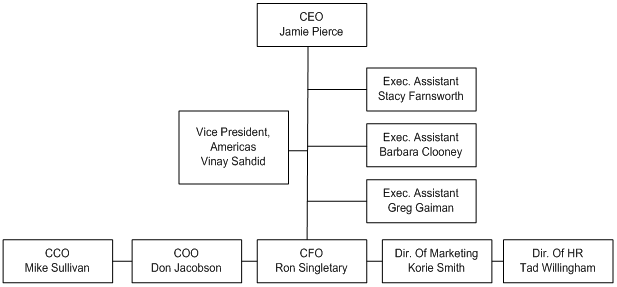Reference no: EM13546 , Length: 2153 Words
Analyze security requirements and develop a security policy that fully addresses them. The project will enable the student to see and understand the need standards in practice, as well as the details that should be covered within the security policy documentation.
Detailed Requirements
Optional and Ungraded Project
- Using the GDI Case Study below, complete the Security Policy Document Outline.
- Provide a one or two-page Security Policy Document Outline. The Outline should cover all aspects of the security policy document and convey the accurate and appropriate information for the stakeholders to make the appropriate decision.
- Ungraded but instructor will provide feedback to make sure students are on-track. This outline can become major part of the "Executive Summary" of the final deliverable.
Project
- Using the GDI Case Study, complete the Security Policy Document.
- Provide a seven- to ten-page analysis summarizing the security policy to the executive management team of GDI. The student designs effective real-time security and continuous monitoring measures to mitigate any known vulnerabilities, prevent future attacks, and deter any real-time unknown threats; and also efficiently meets the organization's objectives. The summary should effectively describe the security policy in a manner that will allow the Senior Management to understand the organizational security requirements and make the appropriate decisions to enforce.
Case study:
Global Distribution, Inc. (GDI)
Global Distribution, Inc. (GDI) is a distribution company that manages thousands of accounts across Canada, the United States, and Mexico. A public company traded on the NYSE, GDI specializes in supply chain management and in coordinating the warehousing, staging, distribution, transportation, and wholesaler/VAR relationship for their customers.
GDI employs over 3,200 employees and has been experiencing consistent growth keeping pace with S&P averages (approximately 8%) for nearly six years. A well-honed management strategy built on scaling operational performance through automation and technological innovation has propelled the company into the big leagues; GDI was only recently profiled in Fortune Magazine.
The executive management team of GDI:

BACKGROUND AND YOUR ROLE
You are the Computer Security Program Manager (CSPM) educated, trained, and hired to protect the physical and operational security of GDI's corporate information system.
You were hired by COO Don Jacobson and currently report to the COO. You are responsible for a $7.25m annual budget, a staff of 17, and a sprawling and expansive data center located on the 9th floor of the corporate tower. This position is the pinnacle of your career - you are counting on your performance here to pave the way into a more strategic leadership position in IT, filling a vacancy that you feel is so significantly lacking from the executive team.
There is actually a reason for this. CEO Jamie Pierce believes that the IT problem is a known quantity - that is, she feels the IT function can be nearly entirely outsourced at fractions of the cost associated with creating and maintaining an established internal IT department; the CEO's strategy has been to prevent IT from becoming a core competency since so many services can be obtained from 3rd parties. Since the CEO has taken the reigns two years ago, the CEO has made significant headway in cutting your department's budget by 30% and reducing half of your staff through outsourcing. This has been a political fight for you: maintaining and reinforcing the relevance of an internal IT department is a constant struggle. COO Jacobson's act of hiring you was, in fact, an act of desperation: the increasing operational dependence on technology combined with a diminishing IT footprint gravely concerned Jacobson, and he begged to at least bring in a manager to whom these obligations could be delegated to. Jacobson's worst nightmare is a situation where the Confidentiality, Integrity, and Availability of the information system was compromised - bringing the company to its knees - then having to rely on vendors to pull him out of the mess.
There's no question that the company's CEO sees the strategic importance of technology in executing her business plan, and in this way you share a common basis of principle with her: that IT is a competitive differentiator. However, you believe that diminishing internal IT services risks security and strategic capability, whereas the CEO feels she can acquire that capability immediately and on the cheap through the open market. You're told that CEO Pierce reluctantly agreed to your position if only to pacify COO Jacobson's concerns.